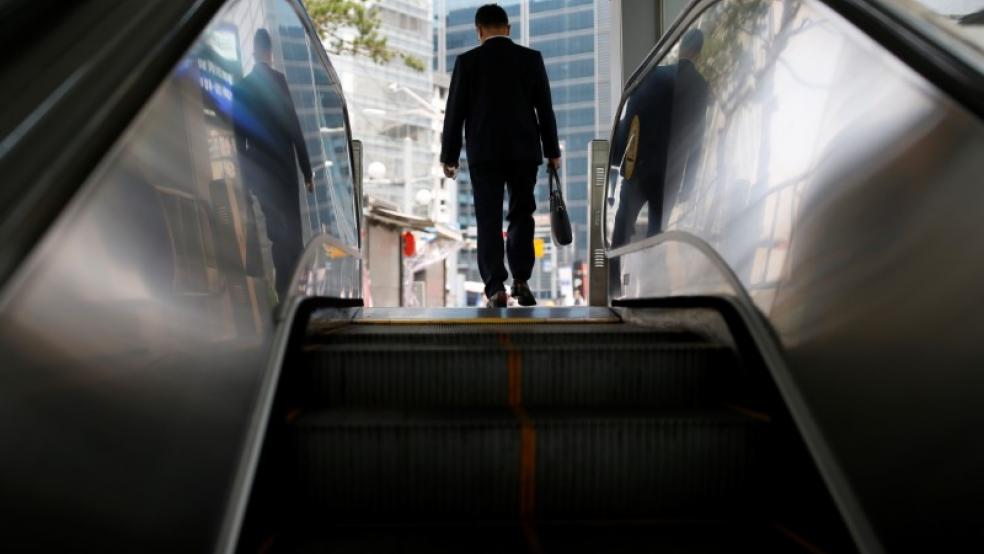The Thomson Reuters/INSEAD Asian Business Sentiment Index <.triabs>, representing the six-month outlook of 118 firms, inched up to 68 for July-September versus 67 three months prior.Philippine firms were the most upbeat followed by those in China, Australia and Indonesia. Companies in Singapore were the most pessimistic.PHILIPPINES: MOST OPTIMISTIC FOR FIFTH STRAIGHT QUARTER AT 94 IN Q3 VS 86 IN Q2Encouraged by stronger-than-expected second quarter economic growth, eight of nine firms provided a positive outlook about the coming six months. Only one gave a neutral view. Respondents included Philippine National Bank , Union Bank , Universal Robina and SM Investments .The respondents cited foreign exchange volatility, fluctuation in energy prices and rising competition as risks. Six companies reported increased sales and orders, with two taking on more staff.CHINA: SENTIMENT RISES TO HIGHEST IN OVER 5 YEARS AT 90 VS 75While a slowing economy remained one of Asian companies' key risks, four of five Chinese firms provided a positive outlook.Three firms reported increased headcount, while one reported a fall. Five took on more business over the past three months, while one reported no change.AUSTRALIA: INDEX AT ITS HIGHEST EVER AT 88 IN Q3 VS 69 IN Q2Sentiment in Australia rose at the sharpest rate among economies polled, by 19 points. Five of eight companies booked more business, with four adding more staff. Australia's jobless rate dipped to 5.6 percent, a three-year low, in August from 5.7 percent.Respondents included Brambles , James Hardie , Stockland Corporation and Oil Search .Six firms were upbeat in their outlook and two were neutral. Main risks cited varied, from volatile energy prices to slowing Chinese growth.INDONESIA: INDEX JUMPS TO OVER 3-YEAR HIGH AT 81 IN Q3 VS 64 IN Q2Boosted by the economy's strongest growth rate in 10 quarters in April-June and higher non-oil and gas exports for the first time in 16 months in August, five of the eight companies surveyed offered a positive outlook.Respondents included Bank Mandiri .Five of eight firms saw increased business volume but staffing remained largely unchanged, with only two firms adding headcount. Volatile energy prices and possible U.S. interest rate hike were cited as risks.SINGAPORE: SURVEY'S MOST PESSIMISTIC AT 38 VS 63A record 17 Singapore companies participated in the survey, with the city-state’s index tumbling 25 points – the steepest among all economies surveyed.Singapore's economy has been hit by weak global demand, while a labor shortage and a flagging oil and gas sector have dragged on growth.Companies cited rising corporate debt in China and energy prices as key risks.MIXED PICTURE ELSEWHEREIn Japan, business sentiment climbed from 46 to the neutral level of 50, while South Korea’s index fell to 50 from 73. In Malaysia, the index climbed to 61 from 55, its highest level since the second quarter of 2015. In Thailand, business sentiment jumped to 72 from 59 while in Taiwan, it was unchanged at 64. In India, it slipped to 75 from 78.Note: Companies surveyed can change from quarter to quarter (Writing by Anu Bararia; Editing by Muralikumar Anantharaman)

